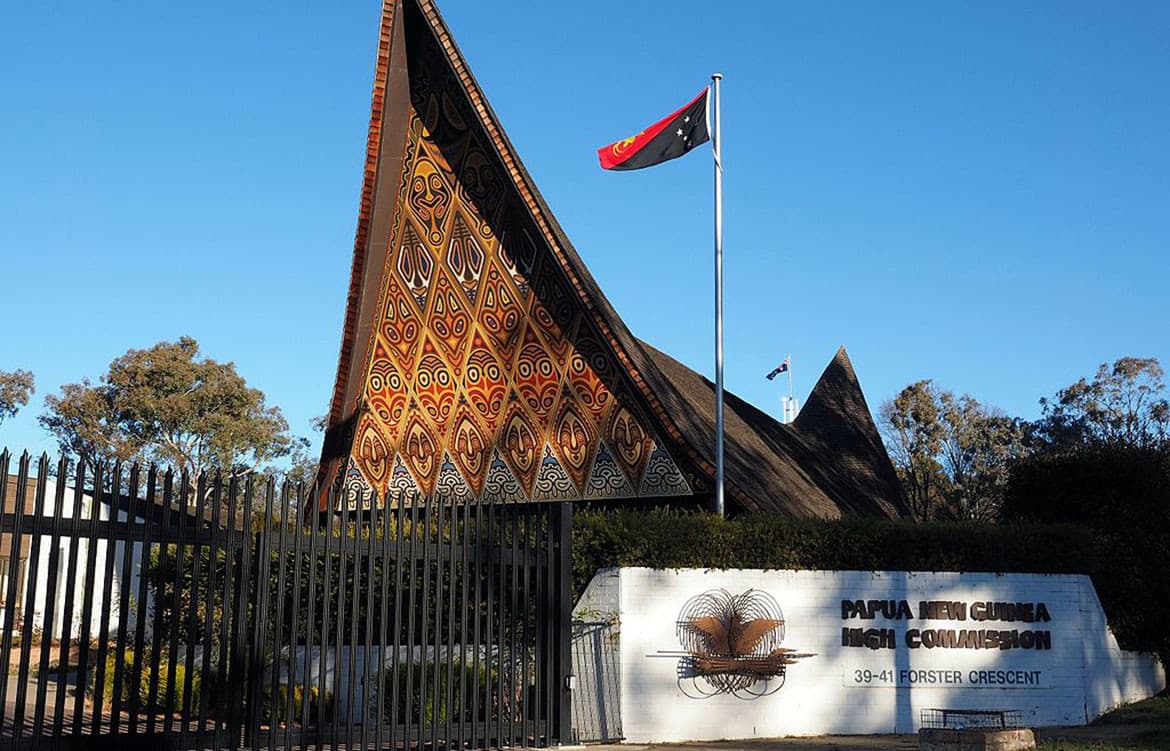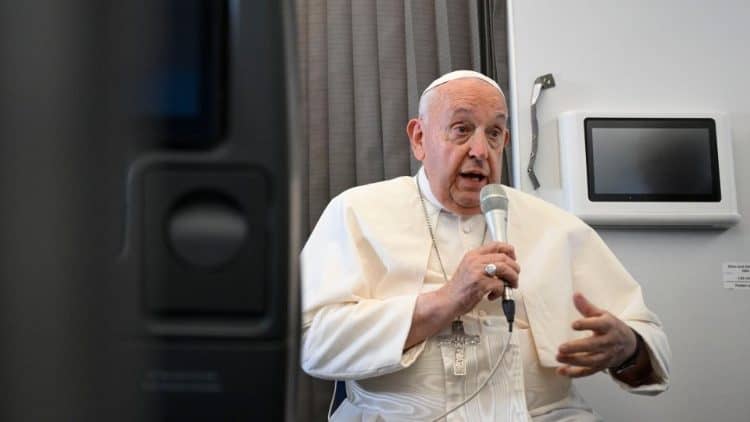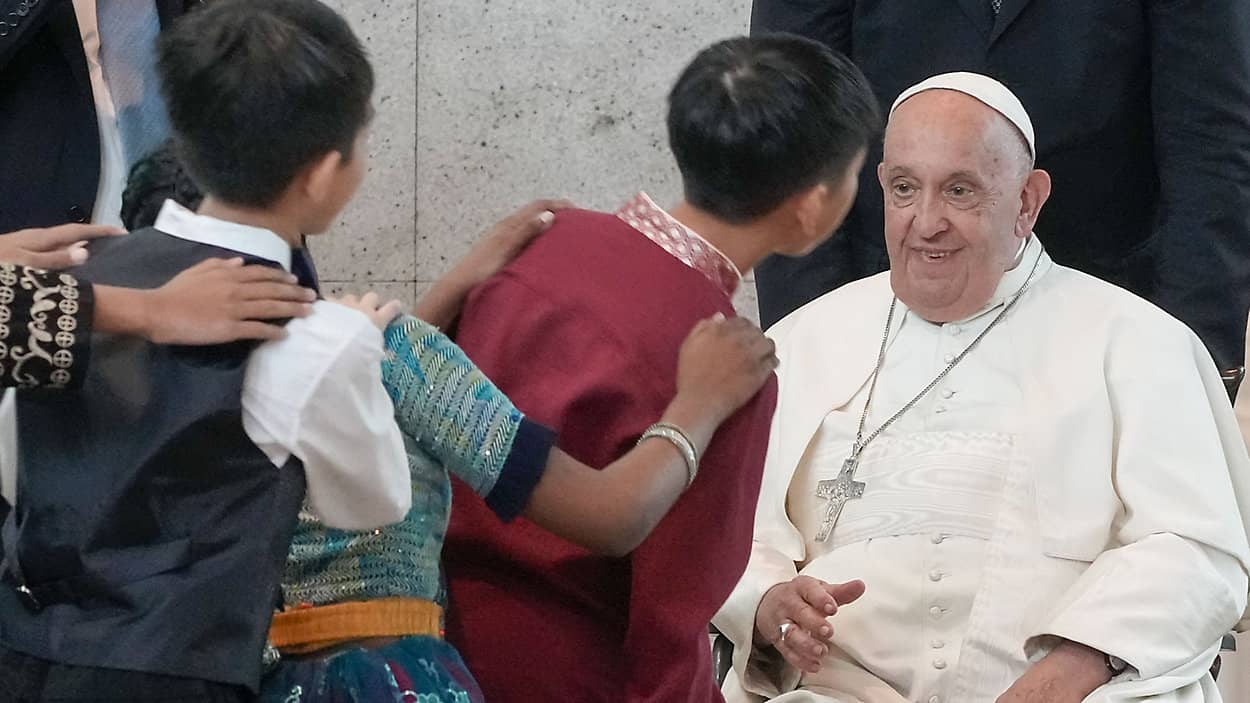PORT MORESBY – Pope Francis has concluded the first leg of his four-nation tour of Asia and Oceania, leaving Indonesia Friday morning and landing in Papua New Guinea, where he is likely to address key agenda items such as poverty and climate change.
When he sets foot in PNG’s capital city of Port Moresby, Francis also will be stepping into one of the most dangerous cities in the world, sitting at around 80.5 on the World Population Review’s crime index.
The U.S. Embassy offered a reminder of the point in a security alert just before the pope’s arrival offering a series of “security best practices,” adherence to which, the alert said, “significantly reduces your chances of becoming a victim of crime” during big events on the schedule.
The list included precautions already sadly familiar to most inhabitants of the country, including having all car windows up and doors locked when driving, making sure packages and other items are concealed while parked, keeping one’s hands free with keys at the ready when returning to the car, avoiding displaying signs of wealth such as expensive jewelry and watches, and never physically resisting a robbery attempt.
To say the least, that’s not the sort of advice most national embassies feel obligated to dole out when a pope comes calling, but it aptly illustrates the gritty realities on the ground.
Gender-based violence is also a pressing concern in the country, with nearly 70 percent of women reporting they’ve experienced domestic abuse, and around half of women nationally having been raped.
Known for its rich cultural and biological diversity, PNG is famous for its beaches and coral reefs, as well as its inland active volcanoes and dense rainforest. It is also known for its many tribal communities, with around 600 distinct tribes present speaking more than 650 languages.
Given the country’s rich natural resources and its economic challenges, poverty and climate change are among the main themes Pope Francis is expected to address while in PNG.
Though PNG is a middle-income country, it has an elevated level of income inequality, leaving 40 percent of the population living below the extreme poverty line, and 41 percent of children living in poverty.
Roughly 80 percent of PNG’s people live in rural areas, where, according to the World Bank, less than 40 percent of inhabitants have access to electricity inside their homes, whether they are on or off the grid.
The country is also considered to be among the top ten most susceptible to climate change worldwide, with the main causes of concern an increase in heavy rainfalls and the warming and acidification of seas causing a deterioration of its coral reefs.
Differently than Indonesia, which was a majority Muslim nation, PNG is a majority Christian, with around 98 percent of the population of 10.5 million adhering to some form of Christianity. Around 26 percent of the population is Catholic, making this an important visit for the local church.
After a full day of travel Friday, Pope Francis will rest before beginning his official itinerary in Papua New Guinea.
On Saturday, Sept. 7, he is scheduled to meet with the Governor General, Robert Dadae, who has held office since 2017. A part of the British commonwealth, PNG is under the rule of King Charles III of England, with the governor general serving as his representative.
Pope Francis will then meet with civil authorities and the diplomatic corps before visiting street children assisted by the local Caritas branch.
Speaking to Vatican newspaper L’Osservatore Romano ahead of the pope’s departure, Cardinal John Ribat, archbishop of Port Moresby, who got a red hat from Pope Francis in 2016, said the children the pope will meet “are suffering,” and are affected by various disabilities such deafness and blindness.
Ribat, who has served as archbishop of Port Moresby since 2008, said the pope will meet with children assisted by “Street Ministry,” a pastoral office he launched in 2010, as well as those helped by the Callan Services, which was established by the Christian Brothers.
“In this way, we are all working together to look after all these children in those situations they are in,” he said.
Pope Francis will close his first day in PNG meeting with the bishops, clergy, religious and catechists who serve in the country, many of whom are missionaries.
On Sunday, the pope will meet privately with the Prime Minister of PNG, James Marape and celebrate a public Mass in Port Moresby’s Sir John Guise Stadium before leaving for the remote diocese of Vanimo.
Local Bishop Francis Meli in an interview with Crux described Vanimo “the most remote” diocese in the country, made up largely of bushlands inhabited by remote communities and where infrastructure is lacking and much of the population lives in poverty, and domestic violence against women and girls is a pressing concern.
RELATED: Pope to make voyage to the peripheries in visit to Papua New Guinea
In Vanimo, the pope will also hold a private meeting with a group of missionaries who make up a large portion of the church in PNG, including several Argentinian priests who run a school, and Argentinian nuns who operate a center for abused women and girls.
He will then return to Port Moresby and will meet with young people Monday morning prior to departing the country.
After leaving PNG, Pope Francis will then make a Sept. 9-11 visit to Dili in East Timor, and a Sept. 11-13 visit to Singapore before returning to Rome.
His current visit to Asia and Oceania marks the longest international trip Francis has made in his 11-year papacy, lasting 12 days, and one of the farthest in terms of distance.
Despite occasional breathing issues and difficulties walking that have at times confined him to the use of a wheelchair, the pope so far has appeared energetic and engaged in his various appointments, at times going off-the-cuff during speeches and making frequent stops to greet those who attend his events.
In his comments to L’Osservatore Romano, Ribat said it is a challenge for many people to get to Port Moresby for the papal trip, as only two dioceses, Kerema and Bereina, are able to reach the city by road. Those coming from other areas, he said, have to travel by plane or by boat.
Around 100 people will walk to Port Moresby from the Archdiocese of Mount Hagen, he said, saying it will take the group around five days to make the trek on foot.
Diocesan parishes and schools are prepared to host Catholics traveling to Port Moresby for the papal trip, Ribat said, as finding other accommodations could be a challenge.
Ribat also addressed the issues of poverty and climate change, noting that many properties were destroyed by a large landslide in May, while his diocese is marred by “violence, looting and killings.”
“Our main challenge is to try to live peacefully,” he said, saying this is one of the main reasons faithful there are looking forward to the papal visit.
“We are seeing that this will be a visit that brings light, that brings hope, that brings blessing, and so, that brings renewal. Renewal in the sense that it encourages us to be able to start anew to be able to do something positive and good for our nation,” he said.
He described the pope’s arrival as “a chance” for the country to shift direction, saying it can generate “a big hope, a way of bringing us strength and peace, because we have gone through all these difficulties, and it’s not easy. But this is our hope now.”















